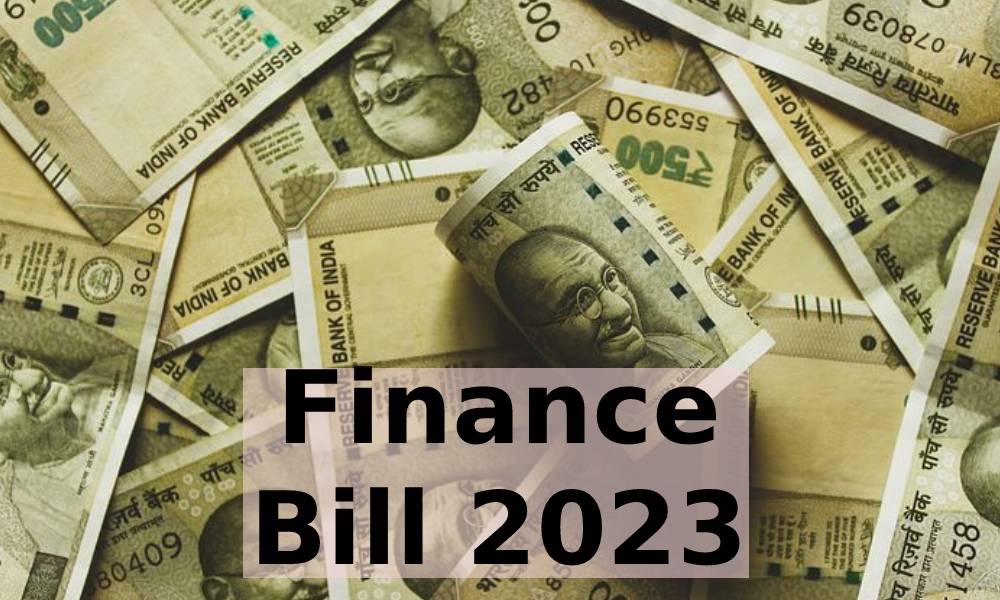New Delhi: The changes proposed in the Finance Bill 2023 with respect to securities transaction tax and taxation of debt mutual funds are likely to have an adverse impact on the market, according to experts.
The bill, which gives effect to taxation proposals for 2023-24, passed by Lok Sabha Friday. The government had moved 64 official amendments to the bill.
Among other proposals, the bill has proposed that from April 1, investments in debt mutual funds will be taxed as short-term capital gains. The move would strip investors of the long-term tax benefits that had made such investments popular.
Currently, officials said, an arbitrage is being created where an interest income from debt mutual fund — where not more than 35 per cent is invested in the shares of a domestic company — is not distributed. Rather, the same is converted into long-term capital gains of 20 per cent with indexation.
Lallit Tripathi, Chairman and Managing Director of Vedant Asset, said effectively this means indexation benefit from debt mutual funds has been removed.
Also, investment in Market Linked Debentures (MLDs) post-April 1 will be short-term capital assets. With this, grandfathering of earlier investments will end and the impact on the mutual fund industry will be slightly negative, he added.
Regarding the increase in Securities Transaction Tax (STT), industry body PHDCCI said the hike is an untimely step, particularly at a time when the markets are experiencing turmoil.
“It will have some impact on market sentiments and trading volumes. We request for more clarity as there were earlier notifications issued by the finance ministry which included a hike in the STT on the sale of Futures and Options (F&O) contracts,” PHDCCI President Saket Dalmia said.
Manick Wadhwa, Director Strategy at SKI Capital, opined that financial markets have demonstrated resilience in adjusting to regulatory changes and tax adjustments in the past.
“Although higher transaction costs may affect some High-Frequency Trading (HFT) participants, the majority of market players may adapt to the new landscape by refining their trading strategies and focusing on more efficient execution,” Wadhwa said.
Sandeep Bagla, CEO of Trust Mutual Fund, said that in the last one to two years, mutual funds have seen outflows from debt schemes in spite of the tax benefit.
“The only segment that saw inflows was the spate of target maturity funds which were passively holding G-Secs, mimicking FDs but with tax benefits,” Bagla said,
He also said there is likely to be no impact in the short term but could impact the ability of mutual funds to attract debt flows in the long term.
Meanwhile, the bill also proposes to provide relief to taxpayers opting for the new tax regime and earning marginally more than Rs 7 lakh.
As per the amendments, such individuals will not have to pay as tax more than the income that exceeds Rs 7 lakh.
Vivek Jalan, Partner, Tax Connect Advisory, the amendment makes it clear that the government is promoting the new scheme of taxation.
One relaxation provided in the Budget was that income up to Rs 7 lakh for assessees in the new regime would be non-taxable through the rebate route. However, there was an anomaly that in case the income exceeded Rs 7 lakh, then the additional tax would be more than the income itself, he said.
“This has been rectified… The amendment will encourage more and more people to opt for new tax regime,” he said.
The government also announced that credit card payments for foreign travel will be brought under the purview of the Liberalised Remittance Scheme (LRS) of the Reserve Bank of India to ensure that such expenses do not escape TCS (Tax Collection at Source).
Hemal Mehta, Partner at Deloitte India, said credit cards usage overseas was always a part of LRS and it would be interesting to learn how RBI will monitor.
The volume of the same should be huge and appropriate data analytics will need to be used for the same, Mehta added.
PTI
